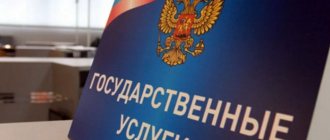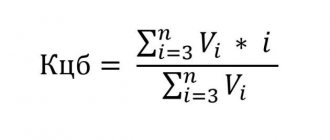Our company provides its services for renting apartments without intermediaries in St. Petersburg. Such services are also the best way to rent housing for an employee with VAT calculation, since we are ready to provide all the necessary documents on payment for housing for further reporting. For more than 5 years, we have been successfully providing apartments for rent without any intermediaries, selecting a convenient location and providing a wide range of services. We also offer our clients to make payments in any convenient way with a high-quality deduction of VAT. You will not have any difficulties with taxes on travel expenses, since we can not only provide accommodation in a beautiful city, but also competently prepare reporting documents, meeting all the requirements of the legislation of the Russian Federation.
Workers in some industries need to travel to perform their job duties. In order to send an employee on a business trip, the employer needs to prepare a number of important documents. The main one among the entire number of documents is considered to be a business trip order, drawn up in a unified format No. T-9 (the order can be drawn up in free form, but it is not recommended to resort to such actions). It is important to understand that constantly working on the road or working on the road to different places does not count as business travel.
Previously, a travel certificate and documents on the official assignment for the employee were issued for the employee, but this practice is no longer mandatory. Since 2015, many managers have begun to refuse such documents, since the law does not require their execution, and the fact of an employee’s business trip can be recorded using the appropriate documents indicating the successful completion of the main task.
When an employee returns from a business trip, his responsibilities include providing the employer with a detailed report on the results obtained, as well as making a final advance payment for the amount provided for travel payments. It should be noted that there are a number of travel expenses that must be compensated by the manager in accordance with the law.
The Labor Code of the Russian Federation guarantees employees performing official tasks on behalf of the employer payment of travel expenses if the specialist:
- was in the process of performing a service assignment and was ultimately able to complete it;
- was on the road during a business trip, that is, moving from place to place;
- started the journey to the place of business on a specific day;
- arrived from a place of business travel on a specific day;
- stayed waiting for transport to travel to the place of business trip, that is, the flight by plane, train, etc. was delayed or postponed for a certain period.
VAT deduction on travel expenses: basic conditions
In accordance with paragraph 1 of Art. 171, paragraph 1, art. 172 of the Tax Code of the Russian Federation, an organization can accept input VAT for deduction if the following conditions are simultaneously met:
- the company acquired goods (work, services) for use in commercial (production) activities;
- goods (work, services) have been paid for and accepted for accounting;
- There are documents confirming the expenses incurred.
Clause 7 art. 171 of the Tax Code of the Russian Federation establishes the right of organizations to deduct input VAT when paying (reimbursing) travel expenses, which, in turn, applies to:
- expenses incurred by the employee for travel to and from the business trip;
- living expenses during a business trip.
Now let’s find out in what cases the above grounds meet the requirements for acceptance for deduction established by Art. 171-172 Tax Code of the Russian Federation:
- Services are used in commercial (production) activities. This condition is considered met on the basis of an order, in accordance with which the employee is sent on a business trip to perform assigned tasks (meeting with potential clients, concluding an agreement, temporarily replacing an employee, etc.). Thus, if an employee is sent on a business trip for commercial/production purposes, then this requirement of the Tax Code of the Russian Federation is considered fulfilled.
- Services have been paid for and accepted for accounting. An organization can accept a VAT deduction provided that the business trip is over and the cost of travel (accommodation) by the employee has actually been paid. Another condition is that based on the advance report submitted by the employee, business trip expenses are reflected in the accounts.
- There are supporting documents. In general, the right to deduction is granted on the basis of an invoice issued by the seller to the buyer. At the same time, representatives of the Ministry of Finance and the Federal Tax Service allow the deduction of VAT on travel expenses on the basis of other documents, which we will discuss in more detail below.
Registration
Amounts of VAT on business trip expenses are subject to deduction, which are made on the basis (clause 1 of Article 172 of the Tax Code of the Russian Federation):
- invoices issued by sellers when selling goods (works, services);
- other documents - in cases provided for in paragraphs 3, 6-8 of Article 171 of the Tax Code.
Thus, VAT on travel expenses is deductible on the basis of strict reporting forms (SRF) issued to the employee and included in the business trip report.
The route/receipt of the electronic passenger ticket and baggage receipt, as well as the control coupon of the electronic railway ticket are documents of strict accountability. They are used to conduct cash payments or payments using payment cards without the use of cash register equipment.
A strict reporting form, filled out in the prescribed manner, with the VAT amount highlighted as a separate line, must be registered in the purchase book (clause 18 of the Rules for maintaining a purchase book used in VAT calculations, approved by Decree of the Government of the Russian Federation of December 26, 2011 No. 1137) . There is no need to issue an invoice. The Ministry of Finance has repeatedly expressed this opinion in its letters (see letters dated October 14, 2015, dated October 14, 2015 No. 03-07-14/58804).
Registration in the purchase book of invoices issued by an agency selling air tickets on behalf of transport companies is not provided for by the provisions of the mentioned resolution.
This means that the itinerary/receipt for an electronic air ticket and baggage receipt printed on paper, as well as the control coupon for an electronic railway ticket, meet all the conditions for deducting the VAT included in their price. But only if the tax amount is highlighted in these documents as a separate line.
In addition, in order to confirm the costs of air travel for tax purposes, the employee is required to provide not only the route/receipt of the electronic air ticket, but also the boarding pass (letter of the Ministry of Finance of Russia dated January 9, 2021 N 03-03-06/1/80056). Apparently, having a boarding pass may also be important for deducting input VAT. Therefore, we recommend that you keep your boarding passes to confirm that VAT has been deducted.
According to controllers, if the VAT amount is not highlighted as a separate line in issued electronic tickets, then the entire amount indicated in these tickets is included in other expenses associated with production and sales, on the basis of subparagraph 12 of paragraph 1 of Article 264 of the Tax Code.
Required documents
According to paragraph 1 of Art. 172 of the Tax Code of the Russian Federation, a VAT deduction can be obtained if you have an invoice issued in the appropriate manner.
This rule is easily followed when applying for a deduction for living expenses. The basis for the deduction is an invoice issued by the hotel (hotel, other organization providing accommodation services). In this case, the invoice can be issued both to the organization and to the employee. In the first case, based on the invoice, the organization makes a cashless payment to the hotel, after which it accepts VAT for deduction. In the second case, the employee pays the bill in cash, after which he receives reimbursement from the organization. The organization, in turn, accepts VAT for deduction based on the invoice and advance report of the employee.
If there is no invoice
However, often there is no invoice issued by the hotel reflecting the expenses for an employee’s accommodation on a business trip. The employee pays the cost of accommodation in cash and receives a receipt without an invoice or any additional documents.
Also, do not forget about travel documents, the receipt of which does not require the issuance of an invoice. Is it possible to deduct VAT in this case? The answer to this question is highly controversial.
On the one hand, representatives of the tax service categorically refer to paragraph 1 of Art. 172 of the Tax Code of the Russian Federation, according to which the basis for deducting VAT can only be an invoice. On the other hand, there are a number of court decisions made in favor of taxpayers:
- – FAS Central District No. A62-1547/03 dated June 21, 2004;
- – FAS of the East Siberian District No. A19-1855/04-5-51-F02-3411/04-S1 dated 09.09.2004;
- – Federal Antimonopoly Service of the Ural District No. F09-554/04-AK dated 03/02/2004.
According to judicial arbitrators, organizations can deduct VAT on the basis of travel documents (railway, air, bus tickets, etc.) and receipts for payment of the cost of living, provided that the payment of these expenses was made by the employee in cash. The rationale for this position of the judicial authorities is clause 7 of Art. 168 of the Tax Code of the Russian Federation, according to which the sale of goods (work, services) to the population for cash payment does not provide for the issuance of an invoice. Such operations are accompanied by the issuance to the citizen of another document on a strict reporting form - a travel ticket or cash receipt.
- Thus, based on current judicial practice, an organization can accept VAT on travel expenses for deduction without an invoice if the following conditions are simultaneously met: travel/accommodation expenses were paid by the employee in cash;
- there is a supporting document (ticket, receipt) drawn up on a strict reporting form
.
If VAT is not allocated
Another popular question regarding the deduction of VAT on travel expenses is whether a company has the right to a deduction if VAT is not highlighted in the documents?
For example, an employee paid for accommodation services on a business trip and received a receipt for the total amount, excluding VAT. Can an organization receive a deduction?
In such cases, taxpayers should also turn to judicial practice. In accordance with the position of the arbitrators, in case of cash payments to the population, the issuance of documents with the allocation of VAT is not mandatory. Thus, an organization can reduce the VAT taxable base through a deduction if an employee paid for tickets or rental housing on his own in cash.
As a conclusion, we note that in order to avoid disputes with the tax authorities, the taxpayer should choose one of the following formats for preparing travel documents:
- The organization pays travel and accommodation expenses in non-cash form on the basis of an invoice with an allocated VAT amount.
- The employee purchases tickets (pays the cost of accommodation) independently in cash . Based on judicial practice, an organization can issue a deduction without an invoice, on the basis of a strict reporting form (travel document, receipt), in which the VAT amount is not allocated.
Should VAT be charged on daily allowances?
When signing the KS-3 form, we had a disagreement with the Customer regarding the calculation of VAT. The facility is being built using the method of sending workers.
The customer refuses to include the cost of paying per diem in the total amount of “other” costs, since he believes that VAT should not be charged on per diem. Is the Customer right?
Answer
This issue is more related to the field of accounting. But it can be answered based on regulatory and methodological documents on pricing in construction.
In accordance with clause 4. 100 “Methods for determining the cost of construction products on the territory of the Russian Federation” MDS 81-35.2004:
“The amount of funds for the payment of VAT is accepted in the amount established by the legislation of the Russian Federation, from the final data for the consolidated estimate for construction and is shown in a separate line (in columns 4-8) under the name “Funds to cover the costs of paying VAT.”
The tax base for VAT in relation to contract work performed under contracts is determined based on the estimated cost of construction, formed taking into account “other” costs, i.e. expenses for sending workers during the construction period are included in the cost of construction products and are subject to VAT on a general basis.
Below is the position of the Russian Ministry of Finance on such issues:
“In connection with the letter regarding the application of value added tax in relation to funds received by the organization for reimbursement of expenses for railway tickets, hotel accommodation, as well as for meals for business travelers,
not included in the price of the contract and incurred in connection with the execution of the contract, the Department of Tax and Customs Tariff Policy reports.
In accordance with subparagraph 1 of paragraph 1 of Article 146 of the Tax Code of the Russian Federation (hereinafter referred to as the Code), the object of taxation of value added tax is the sale of goods (work, services) and the transfer of property rights.
Based on subparagraph 2 of paragraph 1 of Article 162 of the Code, the tax base for value added tax is increased by the amount of money received for sold goods (work, services) to increase income or otherwise related to payment for sold goods (work, services).
In our opinion, reimbursement by the customer of expenses incurred by the organization in connection with its execution of the contract for paid services is associated with payment for the services provided by the organization to the customer.
Taking into account the above, these funds are subject to inclusion in the tax base for value added tax and, on the basis of paragraph 4 of Article 164 of the Code, upon receipt of them, the tax should be calculated at the calculated rate of 18/118. At the same time, amounts of value added tax on the organization’s expenses on railway tickets, hotel reservations and meals for business travelers are subject to deductions in the generally established manner.”
(extract from the letter of the Ministry of Finance of the Russian Federation dated April 22, 2015 No. 03-07-11/22989)
“In connection with the letter regarding the application of value added tax in relation to funds received by an organization supplying equipment, performing installation and commissioning work, for reimbursement of travel, transportation and insurance expenses not included in the contract price and incurred in connection with the execution agreement, the Department of Tax and Customs Tariff Policy reports.
In our opinion, reimbursement by the customer of expenses incurred by the organization in connection with its execution of the contract for the supply of equipment, installation and commissioning work is associated with payment for goods (work) sold by the organization to the customer.
Taking into account the above, these funds are subject to inclusion in the tax base for value added tax and on the basis of clause 4 of Art. 164 of the Code, upon receipt, the tax should be calculated at the calculated rate of 18/118. At the same time, amounts of value added tax on the organization’s expenses for business trips and transportation expenses are subject to deductions in the generally established manner.”
(extract from letter of the Ministry of Finance of the Russian Federation dated August 15, 2012 No. 03-07-11/300)
VAT on air tickets from October 1, 2021
The VAT rate on air tickets depends on the type of transportation: domestic or international.
The current VAT rate for air transportation on domestic flights is 10%. The exception is flights to Crimea, the Kaliningrad region and the Far East, for which the rate is 0%.
From October 1, the VAT rate will be reset to zero.
for regional air transportation bypassing Moscow and the Moscow region (Federal Law dated 06.06.2019 N 123-FZ).
The 10% tax rate remains for flights for which at least one route point (destination, departure or transfer point) is located in Moscow or the Moscow region.
But if the place of departure or destination of air transportation is Crimea, Sevastopol, the Kaliningrad region or the Far Eastern Federal District, then the VAT rate of 0% is applied, even if the plane flies through Moscow airports.
For international air transportation of passengers and baggage, VAT is calculated at a rate of 0%.
Key points when calculating and deducting VAT for travel expenses
In addition to the basic rules and regulations according to which VAT is deducted from expenses during a business trip, there are also a number of other points that need to be paid special attention to:
- You cannot use a cash receipt to deduct VAT . It is important to understand that using a cash receipt to deduct VAT on expenses for goods, services, or work that were paid in cash or electronic money is impossible, since for this procedure it is necessary to draw up the above-mentioned invoice. An exception may include travel and accommodation expenses for the employee.
- VAT must be highlighted in the report . It is also necessary to take into account the fact that when drawing up a report on travel expenses, the employee must draw up an advance report in a fixed form of a strict reporting form (SSR). The VAT itself must be allocated in a separate line in order to accept this tax as a deduction from travel expenses. It is also worth noting that any invoices must be recorded in the purchase ledger for greater accountability.
- Invoice design matters . The employee is obliged to provide the employer with such invoices, but their execution is of particular importance, since such documents cannot be handwritten or printed on a regular printer. The invoice to the employee must be drawn up by the organization to which the travel expenses incurred, for example, the hotel itself where the employee lived. When registering, it is important to indicate the name of this organization, as well as its Taxpayer Identification Number (TIN), KPP, and main address.
- Documents from foreign organizations have their own requirements . It is worth noting that if the business trip was carried out abroad, then all documents evidencing the employee’s expenses must be translated into Russian. The translation process is allowed both with the help of a professional translator and specialized employees of the organization itself, to which the employee returning from a business trip belongs.
- Cash or non-cash payment? Most often, when paying for transport and accommodation, employees use cash, since it is easier to pay and allocate VAT. But in case of payment by bank card or any other non-cash payment method, the employee must provide a receipt from the cash register, which will confirm the fact of payment. It is worth noting that deducting VAT for non-cash payments has its own nuances and is considered not the most desirable option, which is why employees resort to paying in cash.
Thus, it is important to understand that most of the expenses incurred by an employee during a business trip are taxable, therefore, they must be supported by appropriate documents in a strict and government-mandated form. An employee on a business trip needs to pay attention to such nuances so that later misunderstandings do not arise with management.
The hotel must have a category certificate
According to the Regulations on the Classification of Hotels, each of them must be assigned a category. Without a certificate of category it is prohibited to provide hotel services. Depending on the hotel room capacity, the ban comes into force:
- from July 1, 2021, if there are >50 numbers,
- from January 1, 2021, if numbers > 15,
- from January 1, 2012 – for all hotels.
Therefore, starting from July 1 of this year, hotels should be carefully checked before sending an employee on a business trip. When booking rooms, it is advisable to request a copy of the star award certificate. If the posted worker stayed in an uncertified hotel, disputes may arise with the tax authorities regarding written off housing expenses.







